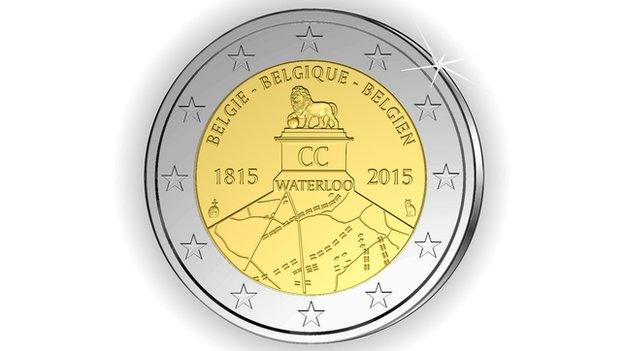France's Hollande seeks support for eurozone parliament
- Published
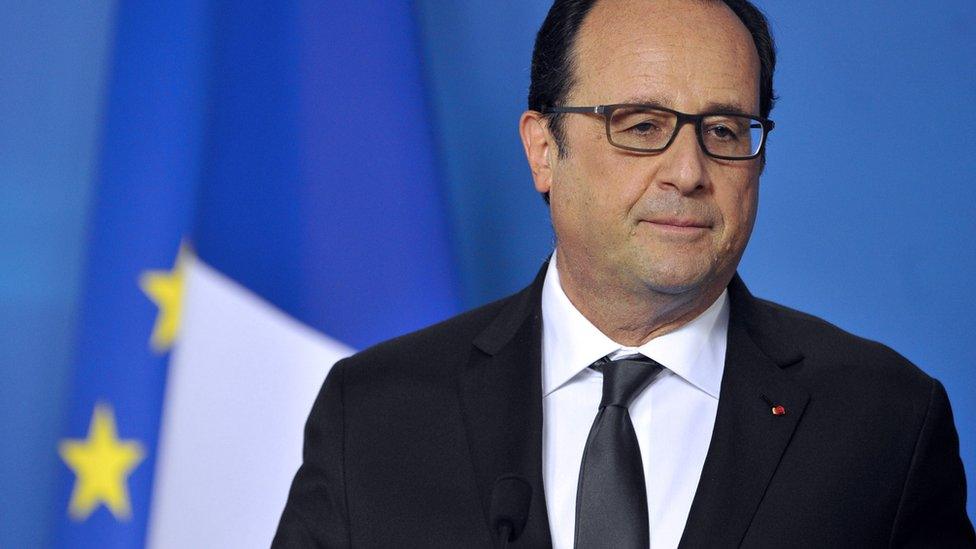
French President Francois Hollande has called for a shared parliament and budget for the eurozone
Jacques Delors, the former European Commission chief and a key architect of the euro, turned 90 on Monday. And among the birthday greetings lined up on his virtual mantelpiece was one from France's President, Francois Hollande.
Writing in France's Sunday paper, Le Journal Du Dimanche, Mr Hollande marked the occasion with a commemorative letter, external, putting forward his vision for the future of Europe: a new parliament for the eurozone countries and a shared budget.
Currently, the eurozone is managed by the Eurogroup, made up of the finance ministers of each nation.
"What threatens us is not an excess of Europe, but an insufficiency [of Europe]" Mr Hollande wrote.
"Parliaments are still too far removed from decisions. And people turn away through being marginalised. Populists have seized on this disenchantment because they are afraid of the world and want to return to the divisions, walls and fences."
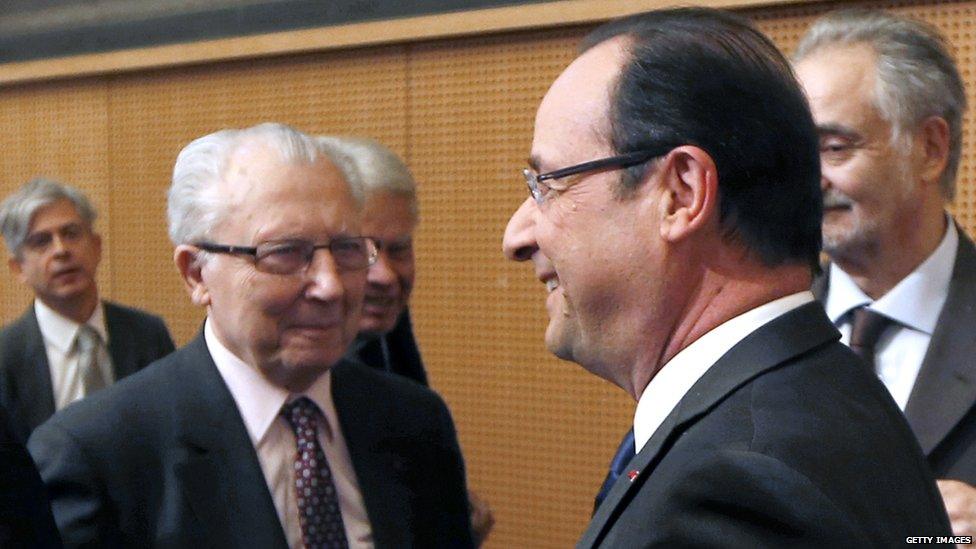
Jacques Delors (L) said in 2011 that political leaders had failed for years to tackle problems in the euro
What is striking is how small a response his proposal has received in France.
Partly, it is because much of it is not new: the Socialist Party has for years espoused the idea of greater economic integration and governance of Europe, as has Mr Delors himself.
And President Hollande's government has already been talking to Berlin, and Brussels, about how to strengthen the bureaucratic links between eurozone countries.
But there's a striking desire to share these sentiments here at the moment, despite widespread public irritation with Brussels.
The plan set out by Mr Hollande on Sunday repeats comments he made last week, on Bastille Day, calling for an "economic government of the eurozone" and suggesting that "we can also, later, go further and have a budget for the eurozone so that we can act and invest in member states, including those that are lagging behind."
The question is, if this is such a long-running idea, why has President Hollande brought it up now, in this very domestic context?
"After the referendum in Greece, the least a French Socialist leader could do is offer more representation to eurozone members," says Laure Bretton, political correspondent for Liberation newspaper.
"It's a way to show his own party and other leaders he hasn't given up on Europe."
Long wait
President Hollande was widely praised among supporters on the left for pushing through last week's agreement to keep Greece in the euro, but the harsh terms of that agreement have seen some of that adulation turn to disillusionment.
Still, it seems doubtful that his idea of a budget for the eurozone - and eventually a parliament to police it - will set many people here alight.
To begin with, the plan is still more than a little vague.
Even Prime Minister Manuel Valls seems to be struggling to give it the "oomph" that President Hollande might be hoping for.
According to L'Express, Mr Valls has said he will "work on a text that will substantiate the president's proposals and come up with a draft ... to serve as the basis for debates."
What other euro-nations will make of it remains to be seen.
BBC Berlin correspondent Jenny Hill suggests that if such a eurozone parliament were to come into being, it could at least alleviate some of Germany's burden in playing fiscal taskmaster, and the bullying reputation it has acquired as a result. But that would depend on its eventual make-up.
If President Hollande hoped the idea might lead to a rebound in approval for him as Europe's saviour, he could be in for a long wait.
- Published14 July 2015
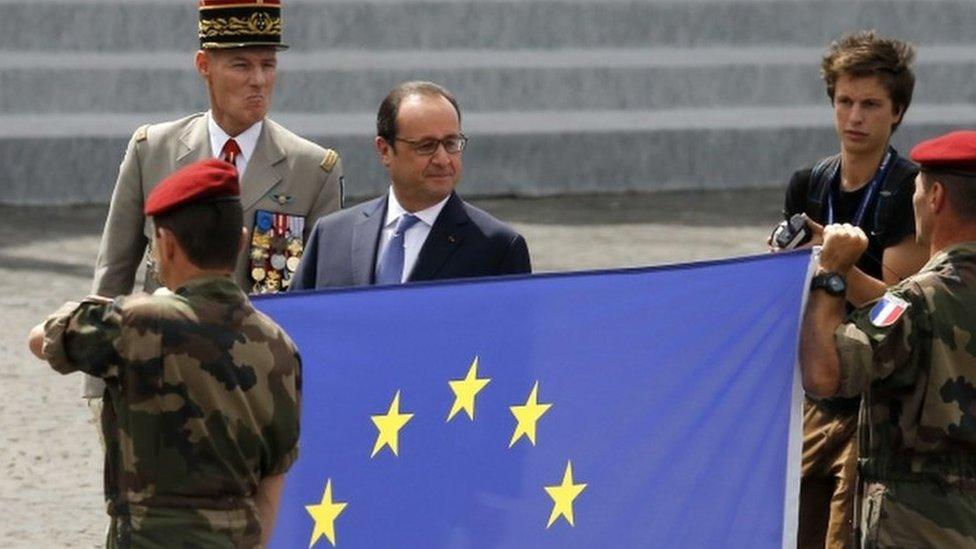
- Published20 July 2015
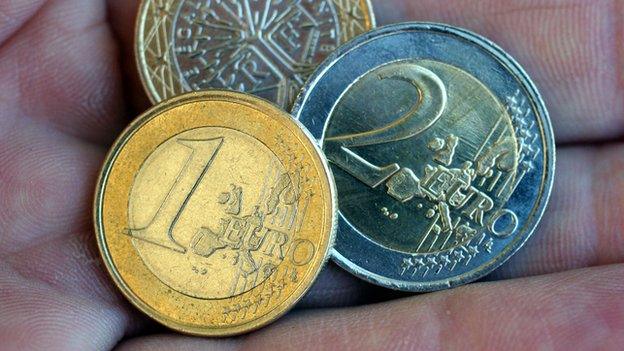
- Published18 July 2015
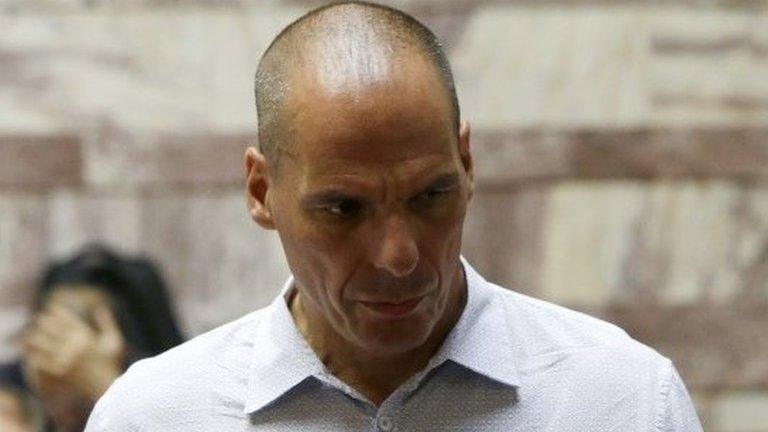
- Published15 July 2015
- Published11 March 2015
